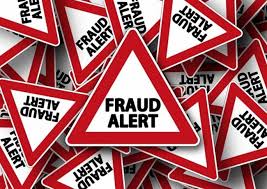Drug and Medical Device Fraud Risks Increase in Pandemic Era

The drug and medical device/testing industry is under significant pressure to develop new products to address the COVID-19 pandemic. The federal government is increasing spending and support of drug and device companies in anticipation of developing a new vaccine, treatment products and testing. As a result, pharmaceutical, medical device and diagnostic and laboratory tests will be subject to federal scrutiny and monitoring for proper use of federal funds, federal health program reimbursement and health and safety issues.
The drug and device industry is already under close scrutiny under DOJ’s False Claims Act program. With the increase of federal funding, close scrutiny of health and safety claims, and federal interest in research and product development, DOJ is likely to have a target rich environment in which to initiate False Claims Act investigations. At the same time, healthcare whistleblowers are likely to increase reporting of potential claims in order to seek significant rewards.
In this context, drug and device companies, as well as laboratories and testing companies, should adopt proactive measures when receiving federal funding assistance, marketing products and services to federal healthcare providers, and accuracy surrounding health and safety claims. The False Claims Act has broad application in the drug and device industry covering not only kickbacks to healthcare providers but can extend to fraudulent claims of efficacy that form the basis for reimbursement under Medicare and Medicaid. Federal prosecutors have used the False Claims Act to focus on quality and manufacturing deficiencies.

For drug and device companies, kickbacks and bribes are a significant risk. Prior to the pandemic, a large number of False Claims Act settlements involved illegal kickbacks/inducements, where drug companies made illegal bribes to doctors, customers or others responsible for the purchasing or recommendation of specific products. Drug and device companies have been prosecuted for funneling improper payments to physicians through speaker programs, consulting agreements, and research programs. In this area, DOJ has uncovered schemes used to compensate pharmacies and the use of charitable foundations as a cover for blatant kickbacks.
Prosecutors comb through Sunshine Act reports which provide detailed information about drug and device company payments to physicians. Based on this information, DOJ will initiate preliminary inquiries that may ripen into full-scale investigations.
Drug and device companies should renew their compliance program vows by updating their risk assessments, increasing audit and monitoring functions, and ensuring that their controls are adequate designed and implemented to mitigate evident risks.

An important and growing risk for drug and device companies is quality and safety of products, especially those that may be rapidly approved by the FDA in order to respond to the COVID-19 pandemic. In a related vein, companies have to avoid misleading claims of efficacy that may be unwarranted or even result in patient harm. DOJ is focused on this issue and ready to act when patients may suffer harms. Companies have to act with great care in this area and ensure that its marketing programs are backed by scientific findings and do not veer into areas where patient harms may be implicated. Corporate compliance programs around quality issues are imperative for companies in this high-profile ppost-pandemic industry.















